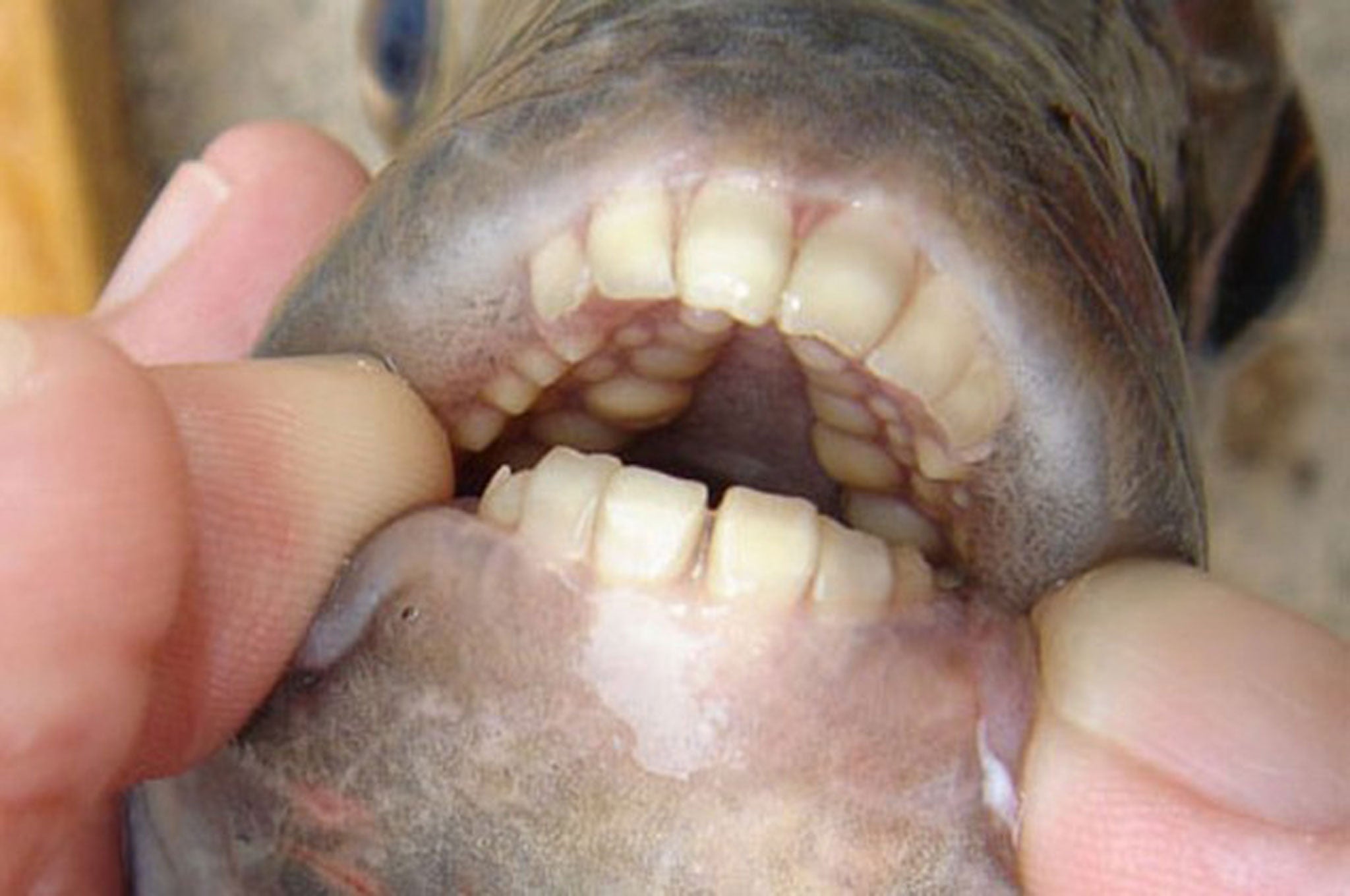Testicle-eating fish, the Pacu, found in Paris with fears it could be coming to the UK
Small piranha-like fish was found in European waters for the first time in August

It is a fish that could give the great white shark competition as the most terror-inspiring creature of the deep. With the appearance of the piranha, but with teeth that look uncannily human, the pacu usually dines on a feast of insects, decaying plants and fruit that falls into the waters of the Amazon. But it has become more known for reportedly dining on another food: men's testicles.
As though destined to fulfil the script of a spoof horror flick, the pacu is now on the move, and has now been found as far from its South American home as Paris. Could it be making its way to the UK?
The small fish was found in European waters for the first time in August with experts warning men to keep their trunks on if swimming in the Øresund channel between Denmark and Sweden.
Now the pacu has been found in the River Seine, The Paris Prefecture of Police newsletter revealed on Tuesday. Although officers were skeptical of the tropical catch, its human-like teeth marked the species as the feared ‘testicle eating’ pacu.
Fish expert Henrik Carl told the Local earlier in August: “The pacu is not normally dangerous to people but it has quite a serious bite. There have been incidents in other countries, such as Papua New Guinea where some men have had their testicles bitten off.
"They bite because they’re hungry, and testicles sit nicely in their mouth."
The pacu, a relative of the piranha that is commonly found around the Amazon, can grow to up to 90cm and weigh in at a staggering 25kg. Fishermen in South America attacked by the pacu have reportedly bled to death after losing their testicles in the fish's vicious teeth.
The fish are found in most rivers in the Amazon and Orinoco basins in South America and have also been spotted in Papua New Guinea, where they are believed to have been introduced in order to boost fish stocks.
Join our commenting forum
Join thought-provoking conversations, follow other Independent readers and see their replies
Comments
Bookmark popover
Removed from bookmarks